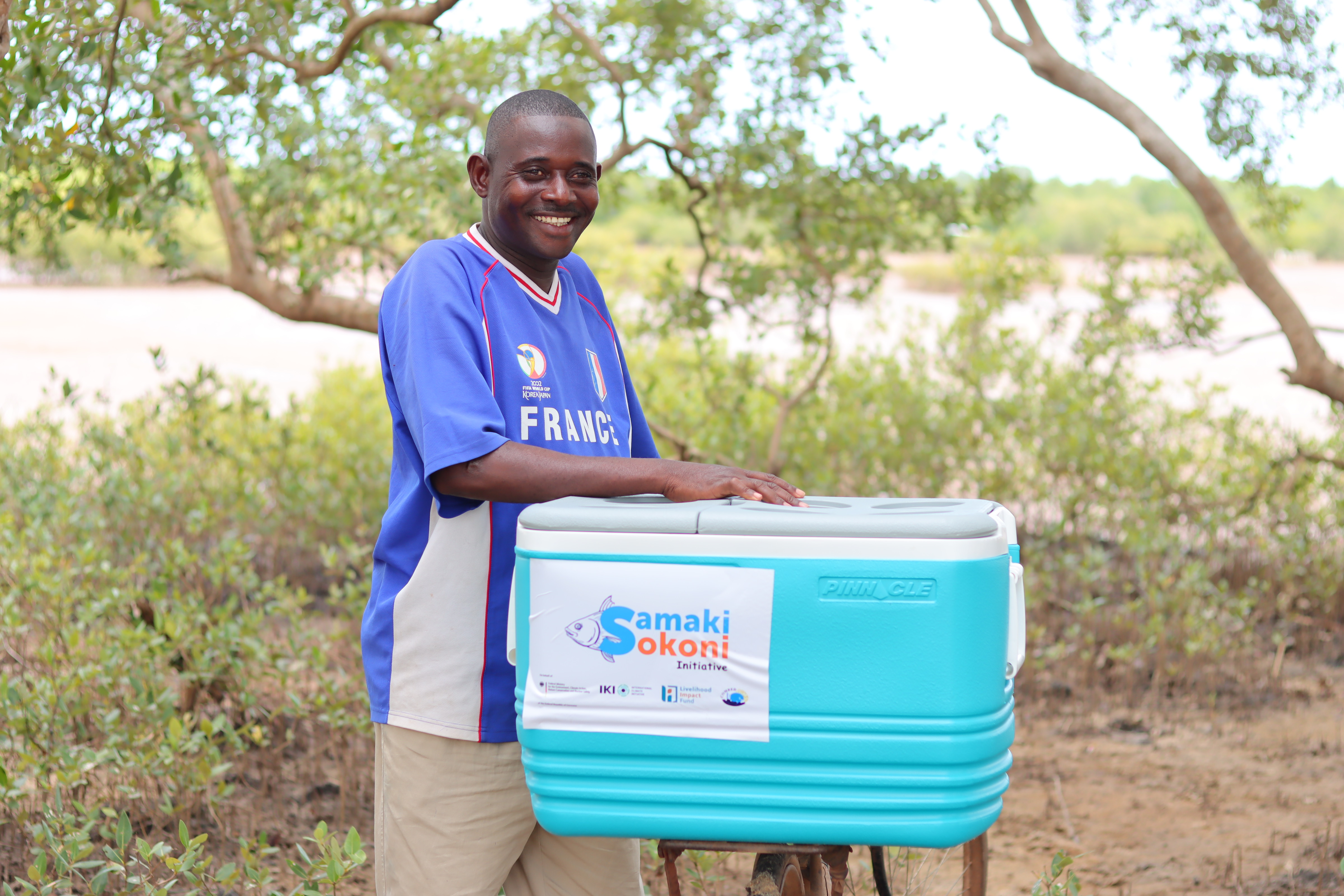Bottom-up conservation models
Human beings and resources have intricate interconnections which can not be ignored in resource management interventions. Temporary octopus closures have gained recent worldwide acceptance by scientists and conservationists due to their practicability in balancing the conservation of marine resources and the livelihood sustainability of the fishing communities. Octopus closures operate on a bottom-up scale, the community gets to decide their conservation area, about a quarter of their fishing ground. The designated area is left undisturbed for replenishment for a fixed timeline (about 3 – 4 months) which rotates throughout the year. Octopuses are ideal species for this model due to their fast growth within short periods and their short life span nature.

Blue ventures have been recognized globally for their expertise and support to local communities in implementing successful octopus closures. In 2021, Blue ventures in a partnership with Coastal Marine Resource Development (COMRED) embarked on a journey with the Munje community to revive their Locally Managed Marine Area (LMMA). This came after a failed attempt by the community to initiate an octopus closure in their LMMA in 2014. The collapse of their first closure was attributed to a lack of support in technical skills and poor leadership of the Beach Management Unit (BMU), a local community body that governs fisheries resources.
The success path in community-led resource management initiatives
A fishing license in Kenya grants any individual the freedom to fish in any Kenyan water. This has rendered Kenyan fishing grounds as open access resources that are associated with inherent challenges. Perhaps, the development of BMU specific co-management plans(CMP) is one of the viable solutions to address this issue. However, the capacity of most BMUs to effectively manage their resources is still low. BMUs operate under the BMU regulations 2007 that requires them to have by-laws to regulate their daily operations.
Nevertheless, the level of comprehension of these by-laws by most of the BMU members is still negligible, this has been so evident through my long-term experience of working with BMUs in Kenya. Apparently, in Munje BMU the case was the same. Ignorance among the majority of the BMU members has been attributed to this turmoil. Consequently, the majority of BMUs end up operating outside their by-laws without a clear direction of governance. Weak BMU governance can inhibit the success of community-led conservation initiatives, this was a key lesson from the failure of the first octopus closure in Munje.Our keen focus is centered on BMUs’ governance training and mentorship to strengthen community-led management and conservation initiatives.

New trials
Learning exchange visits are equally important in changing the community’s perceptions of fisheries management. Communities exchange knowledge and ideas on different fisheries management practices which can be emulated and applied in different contexts. On 6th September 2021, I accompanied representatives from the Munje community to a learning visit to Pate Marine Community Conservancy (PMCC). Under the technical support of Northern Rangelands Trust (NRT), PMCC succeeded in establishing the first successful octopus closure in Kenya in 2012. Just by temporarily closing a small piece of their fishing ground, the Lamu community has completely changed their octopus fishing story.

Luckily, during the Lamu visit, the fishers were about to open their closure after four months of waiting and I was eager to document this mega event. Before the harvesting, the community gathered for an auctioning exercise whereby fishers negotiated with octopus buyers for a higher octopus price. The highest bidder offered the fishers a price of Ksh. 220/Kg (about USD 2.00) of octopus, this price was higher by 18% compared previous one of Ksh 180 /Kg of octopus. The demand for octopus was high and it was time for the fishers to feast.
A total of 332.5 kilograms (Ksh 73,152) of octopus was landed on this first day of harvest, this was a good sign for the first day of the closure opening. The size of the octopus harvested was impressive, some weighed up to 5 kg. ‘Since the establishment of the octopus closure, our community has developed greatly. I can comfortably support my 5 children’- Amina Ahmed, Lamu fisherwoman.

Munje community was fascinated by the success story of Pate Marine Community Conservancy and was eager to replicate the same in their context. A key takeaway from the visit was to have community buy-in through intensive awareness creation for the successful establishment of an octopus closure.‘We have been impressed by what is happening in PMCC and we have realized unity is strength. We can’t wait to try this in our community’- Rengwa, a member of the Munje community.

Tough decisions
The packaging and delivery of the awareness message largely contribute to the reception of local communities to resource management reforms. Fundamentally, initiating a change in any community context is not always a walk in the park. Our biggest hurdle during the initiation of Munje octopus closure was resistance from a group of octopus fishers who normally use illegal gears. ‘Our ‘unproductive’ fishing ground is the only resource we have. Even if I manage a catch of 1 Kg a day, it is enough to sustain my family for that particular day,’ said Rashid Ramadhan, Munje octopus fisher. The fishers were adamant about giving up their fishing ground for conservation.

During the awareness campaigns, the Munje peer leaners(the participants of the Lamu exchange visit) overlooked this key target group, something that was not received well. The majority of these fishers perceived the closure as a top-down management initiative meant to benefit a few people. Misinterpretation of the awareness message can indeed cripple the initiation of resource management reforms in communities. Careful structuring of the awareness message and the right selection of audience is indeed vital, this was worked for us in Munje octopus closure campaigns. After several focus awareness campaigns, Munje fishers eventually saw the need to sacrifice a piece of their fishing ground for a temporary octopus closure.
.png)








